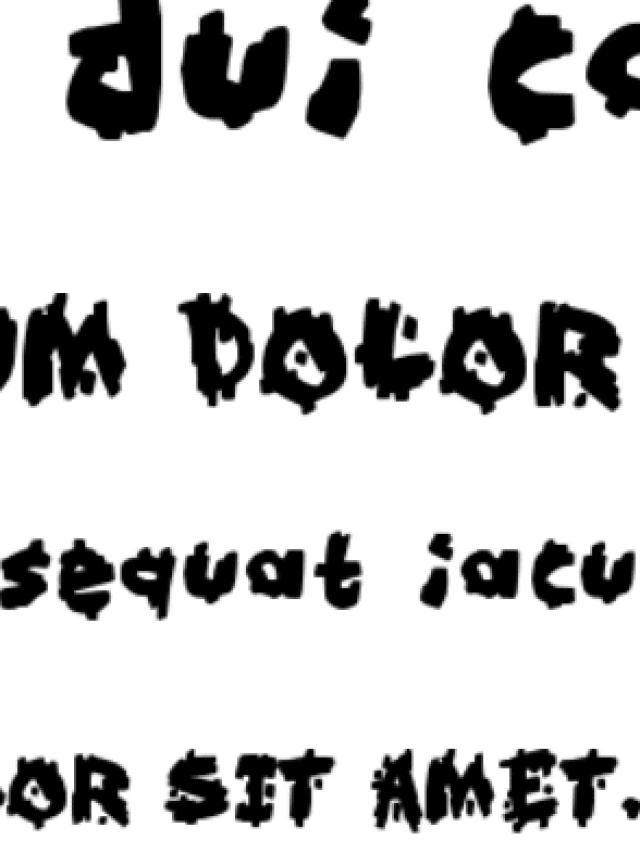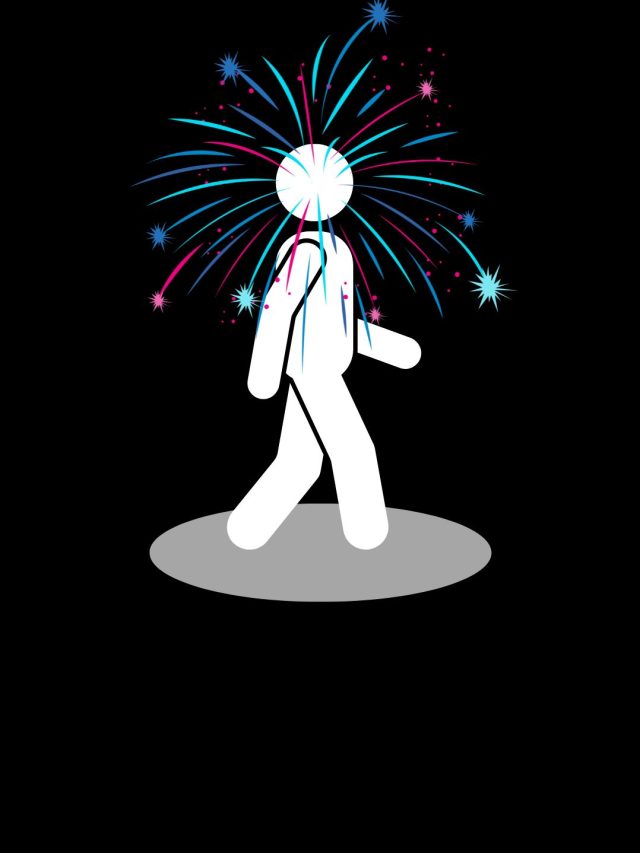The COVID-19 pandemic has disrupted the world with exponentially rising cases, deaths, constant fear & uncertainty, and forced social adjustments like work-from-home, self-quarantine, quarantine, isolation, and social distancing. These are uncomfortable but necessary adjustment everyone has to make today to flatten the curve. It’s not that great, but it is necessary. It’s easy to worry and feel frustrated. Long-lasting negative moods filled with stress and anxiety are always bad and can make things worse – with or without social distancing.
So what can you do? Here are 6 psychological strategies to reduce worry, relax, calm down, and not panic during the coronavirus pandemic. Use them to improve the quality of your day and spend time constructively. These will help you get through this coronavirus situation and the new way of life called social distancing.
1. Deep breathing
Structured deep breathing is the easiest, quickest way to redirect your attention from all sorts of anxiety, negative thinking, stress, worry, and panic. Whether your mental frenzy manifests in an increased heart-rate, sweat, obsessive thinking, or extreme worst-case-scenario thinking, breathing will calm you down.
- Breathe in deep from your nose slowly and gently.
- Breathe out deep from your mouth slowly and gently.
- Count 1 to 5 while breathing in and out if it helps.
- Close your eyes and focus your undivided attention on your breathing for a few minutes.
Deep breathing works with a number of pathways[1]. It offers psychological distance from the anxiety-inducing context. It also counteracts the physiological responses of anxiety – increased heart rate, sweaty palms, freeze response, muscular tension, etc. Use this breathing technique when you are panicking and your anxiety is rising.
If someone else is really worried around you and can’t handle the panic, give these breathing instructions.
2. Progressive muscular relaxation
- Sit in a comfortable chair or lie down on your bed.
- Slowly breathe in and breathe out 5 times.
- Choose a muscle group like your hands and forearms. Let them rest loosely.
- While breathing in, begin tensing them up as much as you can till you feel you are tightened up.
- Breathe in and breathe out 5 times.
- While breathing out, release the tension slowly and steadily.
- Acknowledge the feeling of muscles releasing all the tension and relaxing
Do this for each of your 9 nine main muscle groups: (a) hands and forearms; (b) upper arms; (c) forehead; (d) eyes, nose, and cheeks; (e) jaw, chin, front of neck; (f) back of neck; (g) upper body; (h) legs up with toes pointed down; and (I) legs up with toes pointed up.
With this technique, your body is forced to relax. It is also the best time to assure yourself that you will get through the COVID-19 pandemic – you will adjust, and you will figure things out.
This technique is also effective in reducing anxiety in already infected people[2].
3. Listen to music
Music is, without a doubt, one of the most powerful ways to relax, enjoy, and distract yourself. On top of that, it has the power to pull you from other things and immerse you in whatever you choose. Music can regulate all aspects of your mind/body-system – thoughts, anxiety, anger, fear, sleep, mood, and even loneliness. It puts us in a favorable mental state. If you like music, use it. You can read more about how music affects us here. If you are worrying a lot, listen to something you like or even explore new music.
Also read, watch media, talk, cook, sleep, clean, organize, exercise, stretch, or do anything else you like.
4. Work and Learn with a purpose
Spend your day productively. Do something useful, work on your skills and learning. Complete things you’ve procrastinated. Not only will this be a great distraction, but it will also reduce boredom and make you feel like you’ve spent your time well. It’s a great time to introspect and work on your mental space what figure out what you prioritize. Learn to be humble and ok with uncertainty but don’t get consumed by the virus. Your mental space can be used for a lot of other valuable things.
Do things you like and spend time constructively. Boredom sucks but you can do something about it. Meaningful and stimulating work is a reward in itself. Give yourself that. Stay grounded in a productive reality. When you lose so much control, you might feel like compensating elsewhere. Focus that energy constructively. Find a purpose for each day and make it meaningful to counter the anxiety, uncertainty, helplessness, and hopelessness created by the crisis.
With the bonus time you have, study and work sincerely without cutting corners. If you have nothing to study or learn, pick something up. Do a good-enough job you are proud of.
5. Look inward and introspect
What happens when our control over our lives is taken away and we are given a highly uncertain fate? We accept it and adapt. This is the time to realize how little control we have in the greater scheme of things, be humbled. We lose sight of it and become selfishly arrogant. Remember how healthcare workers are next to a deadly virus so we can live and suffer less.
Since most are now intimately familiar with worry, dig deeper and tap into the compassion that generates the worry.
This is the time to gain a serious sense of mental independence and develop basic life-skills to remove our dependence from other people who did all the work. This is the time to be resilient, self-reliant, and supportive. Not everyone will ride this through successfully, but the ones who do will emerge with more inner-personal and interpersonal depth.
Since you can’t go and meet friends, look inward and extend that to your relationships. Work through existing differences that may appear dwarfed in front of the virus. Support others, have real conversations and acknowledge things you’ve taken for granted. Reevaluate how you perceive the world, the context and the picture has changed. Take the time to be a person you yourself are proud of. Use social media socially; share memes and connect. This is exactly the situation when social media affects mental health positively.
6. Look at the bright side
There is no doubt that the world is scary right now and people are dying. That is our reality. No amount of good can really make-up for an unnecessary death. However, there are some positive outcomes.
- Animals are resurfacing and enjoying their flexibility.
- The amount of garbage we are throwing on the roads is reducing.
- Air, Water, Noise pollution levels are dropping.
- Humans are united to fight a common enemy – for human welfare, not personal profit. The pandemic will accelerate a line of new protocols, technologies, and ideas for our future.
- Our environment might just be a little bit better once this is over.
- We’ll have emerged with a new sense of appreciation, newly found humility, and adaptive, useful skills.
- We have a real tangible mechanism to empathize with the world.
- We as a society have become more hygienic.
Chances are you are stressed out right now, go back to step one and complete it.
And finally, follow the recommendations and rules set by the public health authorities. Don’t analyze fragments of data on the virus and make special rules for yourself. Follow official rules. This will offload a lot of your decision making stress to a standard protocol.
Apart from these, maintain a schedule, sleep well, eat healthy food, drink water, and stretch or exercise.
P.S. Thumbnail image credits: Heorhii Heorhiichuk[3] from Pexels[4]
Sources
[2]: https://www.sciencedirect.com/science/article/pii/S1744388120302784
[3]: https://www.pexels.com/@heorhii-heorhiichuk-266550?utm_content=attributionCopyText&utm_medium=referral&utm_source=pexels
[4]: https://www.pexels.com/photo/man-wearing-suit-inside-the-room-1173735/?utm_content=attributionCopyText&utm_medium=referral&utm_source=pexels

Hey! Thank you for reading; hope you enjoyed the article. I run Cognition Today to capture some of the most fascinating mechanisms that guide our lives. My content here is referenced and featured in NY Times, Forbes, CNET, and Entrepreneur, and many other books & research papers.
I’m am a psychology SME consultant in EdTech with a focus on AI cognition and Behavioral Engineering. I’m affiliated to myelin, an EdTech company in India as well.
I’ve studied at NIMHANS Bangalore (positive psychology), Savitribai Phule Pune University (clinical psychology), Fergusson College (BA psych), and affiliated with IIM Ahmedabad (marketing psychology). I’m currently studying Korean at Seoul National University.
I’m based in Pune, India but living in Seoul, S. Korea. Love Sci-fi, horror media; Love rock, metal, synthwave, and K-pop music; can’t whistle; can play 2 guitars at a time.




























During this tough times its very important to Distress yourself. Glad to read this blog and tips about Potent Ways to Reduce Stress during the COVID-19 Pandemic. I would also like to add that keep busy yourself in something can also leads you in better situation.
great advice, but what about people who have been self isolating themselves before the corona virus, should they be seeing a therapist or what should they be doing?
Thanks, I would recommend that every person who is suffering from mental health issues seek some type of help – be it a therapist, group activity, new work culture, self-help, nature-walks, yoga, etc. But therapy is often quite targetted and effective. If someone is self-isolating themselves without the presence of an external threat like the coronavirus, it may indicate depression, anxiety, low self-esteem/self-worth, or a few other type of mental health issues. I recommend therapy in that case.